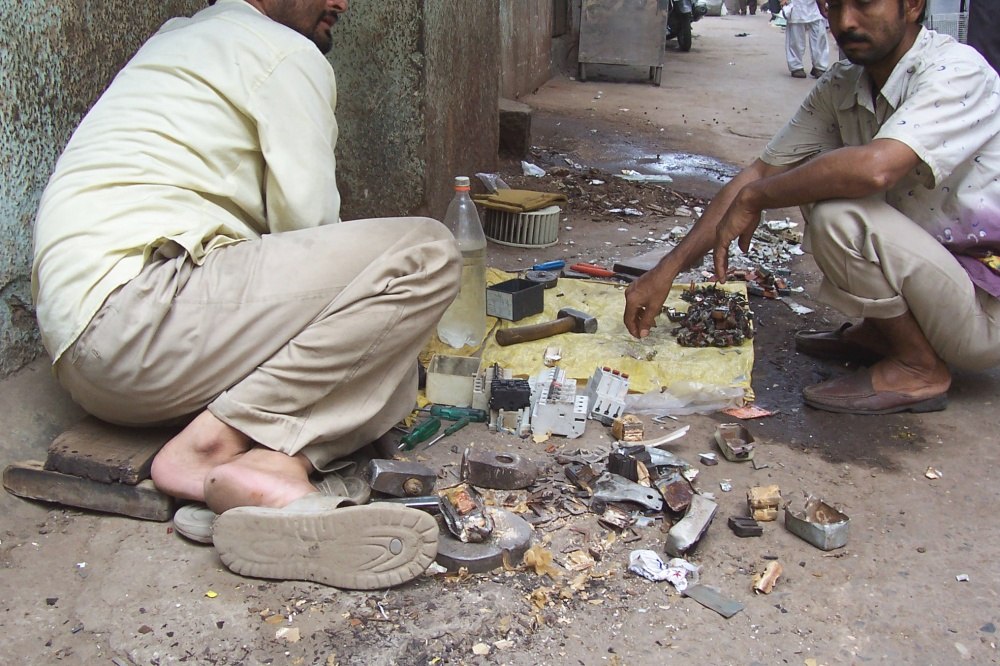
E-waste collectors in Delhi. (Picture Credit: The original uploader was Thousandways at German Wikipedia. (Original text: Matthias Feilhauer (Benutzer: thousandways)), Ewaste-delhi, CC BY-SA 2.0 DE)
Following a directive by the National Green Tribunal (NGT) earlier in February this year, the UP Pollution Control Board (UPPCB) has recommended setting up a pilot fine pulverization unit to manage the potential environmental risk posed by the e-waste generated by processing units in and around Delhi.
The pollution board has identified Waste Printed Circuit Boards (WPCB), that primarily contain copper and tin, as the main source of e-waste generated out of the recycling industry in Ghaziabad’s Loni. Suggesting that incineration or landfilling of such waste is a short term and capital-intensive process, the state pollution board has recommended that the Central Pollution Control Board (CPCB) look to setting up a centralised pulverising unit or similar technologies to mitigate the threat posed by e-waste generation by units around the capital.
The report states that WPCBs were a ‘high-value’ commodity to both the formal and informal e-waste recycling industry and a variety of metals ranging from base metals like copper and aluminum to precious metals like gold, silver, platinum, and palladium as well as critical metals of rare earth metals among others.
The report was submitted by the state pollution monitoring body on September 28 in line with a directive issued by the NGT earlier in February this year while hearing a plea alleging that there were nearly 5,000 illegal e-waste processing units operating in around Delhi.
The Green Tribunal had reportedly taken note of a media article which said that 5,000 illegal e-waste processing units are operating in and around Delhi, as per the Toxic Link study.
In compliance with the green tribunal’s directive, the UPPCB also submitted that it had taken action against 80 illegal units found functioning from Ghaziabad’s Loni area Since July this year.
The Uttar Pradesh Pollution Control Board, in its report to the NGT September 28, recommended that the Central Pollution Control Board (CPCB) could consider tapping the generators of electronic waste in Loni in Ghaziabad district under the Extended Producer Responsibility (EPR) clause.
Picture Credit: The original uploader was Thousandways at German Wikipedia.
(Original text: Matthias Feilhauer (Benutzer: thousandways)), Ewaste-delhi, CC BY-SA 2.0 DE)



